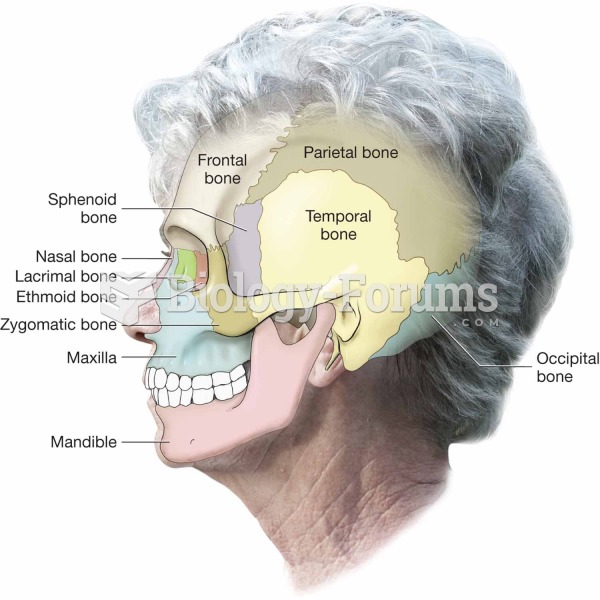|
|
|
Signs and symptoms of a drug overdose include losing consciousness, fever or sweating, breathing problems, abnormal pulse, and changes in skin color.
The calories found in one piece of cherry cheesecake could light a 60-watt light bulb for 1.5 hours.
Computer programs are available that crosscheck a new drug's possible trade name with all other trade names currently available. These programs detect dangerous similarities between names and alert the manufacturer of the drug.
In women, pharmacodynamic differences include increased sensitivity to (and increased effectiveness of) beta-blockers, opioids, selective serotonin reuptake inhibitors, and typical antipsychotics.
A strange skin disease referred to as Morgellons has occurred in the southern United States and in California. Symptoms include slowly healing sores, joint pain, persistent fatigue, and a sensation of things crawling through the skin. Another symptom is strange-looking, threadlike extrusions coming out of the skin.
 (A) Bronchopneumonia with localized pattern. (B) Lobar pneumonia with a diffuse pattern within the l
(A) Bronchopneumonia with localized pattern. (B) Lobar pneumonia with a diffuse pattern within the l
 The recently discovered lleret calvaria from Kenya is the smallest H. erectus and shares many traits
The recently discovered lleret calvaria from Kenya is the smallest H. erectus and shares many traits





